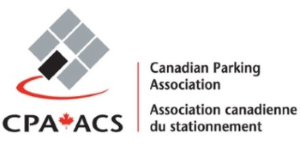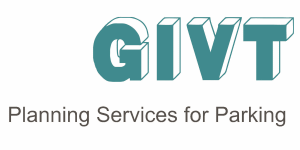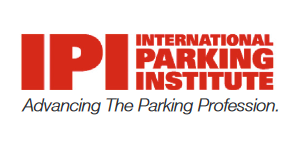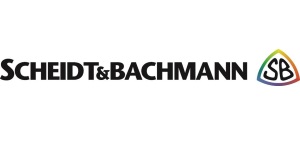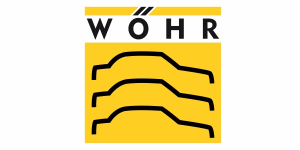WORLD PARKING SYMPOSIUM XI
SPEAKERS
The Symposium organizers are pleased to provide the below summary of some of the abstracts to be presented at the World Parking Symposium in June 2018. Further presentations will be posted shortly. The focus of the symposium presentations will be on the role of parking and transportation in making connections, managing relationships, linking services, and managing access to land and space to create mobility solutions in the modern world.
-
Keynote Address
Florian Lennert
-
UCLA: Changing the Campus Mobility Paradigm
Renee Fortier / David Karwaski
Click here to preview
-
Quality Check of Parking Structure Layouts: an Approach for a Procedure
Andreas Schuster
-
Driving a change in communication
Valentina Moise
-
Bicycle Parking - Emerging Trends and Responses to the escalating increase in Bicycle Ridership in Major Urban Centers
Dennis Little
Click here to preview
-
Parking – Alternatives, Incentives and Integrations
Julie Dixon
-
Parking fee – additional tax or necessity?
Andrzej Szarata
-
Fighting Myths and Legends in Parking
Sjoerd Stienstra
-
The Threat to Shopping Centres from Digital Giants
Cristina Lynn
-
How Can Parking Management Help to Meet the Several Environmental Challenges Stuttgart is Faced With?
Manfred Wacker
-
Examining and Planning for the Impact of Emerging Trends in the Parking Industry
Chris Hylton
Click here to preview
-
Project “Development of Methods for Generation and Digitalization of Parking Space Data”
Prof. Dr.-Ing. Petra K. Schäfer
-
The Parking Operator as Mobility Manager. New interfaces, new applications, new business areas?
Dr. Ilja Irmscher
-
Parking and Parking management in Berlin – an overview of concepts and solutions
Angela Schiefenhövel
-
Direct navigation to the nearest available on-/off-street parking lot: A solution to losing time and causing congestion
Stefan Koch
- Title TBA Ralph Bond
Keynote Address - Florian Lennert
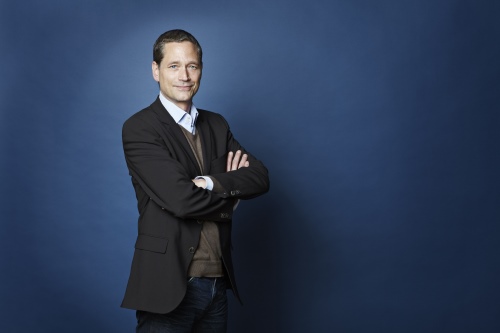
Florian Lennert is Director of Intelligent City, an applied research and innovation platform jointly
established by the Innovation Centre for Mobility and Societal Change (lnnoZ) in Berlin and the London
School of Economics and Political Science (LSE Enterprise). Intelligent City pursues applied research,
knowledge-transfer and innovation at the interface of smart mobility, renewable energy systems,
intelligent infrastructure and future city design working with industry, science and government.
Intelligent City collaborates with a range of international research partners including LSE Cities, MIT
Media Lab and UC Berkeley in developing sustainable urban innovation and technology strategies and
hosting the global Disrupting Mobility Summit. Florian serves as rapporteur of the European
Commission expert group for smart mobility systems and service and regularly advises research
institutions, governments, municipalities, businesses and technology ventures on sustainable
innovation. He was chairman of the jury of 2017 Austrian National Mobility Award and a member of
the jury of the EU Transport Innovation Challenge 2017. Florian is a co-founder and fellow of the LSE
Grantham Research Institute for Climate and Environment. Previously, he co-founded and coordinated
the LSE Centre for Analysis of Risk and Regulation. A native of Berlin, Florian has in the past worked
with the German Institute for Urbanism and the German federal privatisation agency. He holds a B.Sc
in Economics and an MPA from the LSE.
UCLA: Changing the Campus Mobility Paradigm
While the car centric nature of Los Angeles has provided UCLA with many challenges, continued effort to shift the focus from parking cars to moving people has resulted in less: cost, parking demand, land use, CO2 and traffic congestion; more: choice, mobility, multi-modality and place-making. Changes in the built environment to de-emphasize cars, coupled with incentives to use sustainable modes have shifted the mobility paradigm and enabled 40% campus growth while reducing traffic by 25%. As parking inventory is reduced and freed up land is used for other purposes, policy changes are encouraging sustainable modes.
As Millennials and Generation Z eschew car ownership and with autonomous vehicles on the near horizon, the pace of change in mobility management is accelerating. Road diets, bicycle and pedestrian infrastructure investment, rideshare and TDM are being augmented by new pilot programs for autonomous vehicle shuttles and accommodations for ride-hailing service pick-up and drop-off.
Renée Fortier
oversees UCLA Transportation which through a comprehensive program has improved mobility and livability for the UCLA community and has been recognized as a leader in sustainable transportation.
David Karwaski
has 24 years of multimodal transportation experience and oversees all transportation planning efforts at UCLA. Dave authored the campus’ Sustainable Transportation Plan and manages its traffic system.
Quality Check of Parking Structure Layouts – an Approach for a Procedure
The quality of parking structure layouts is - compared with other traffic buildings - hardly checked in the planning process. For the checking process no integrated procedure exists.
First approaches for such a procedure are developed and represented. A two-stage approach is pursued: 1. a quality audit for designed parking structures and - if the result shows a certain minimum standard – 2. a determining of a level of service (LOS). First calculation rules and first parameters needed are specified.
The procedure has been published in the German scientific journal “Straßenverkehrstechnik”, year 2015, no. 1, pages 22 – 27.
Prof. Dr. Andreas Schuster is head of the Institute of Traffic and Transport Engineering at Zwickau University of Applied Sciences. He is Member of the committees “Parking” and “Quality of Road Infrastructure” of the German Road and Traffic Research Association (FGSV). After studying at Technical University Munich and Swiss Federal Institute of Technology Zürich he did his doctorate at Technical University of Darmstadt (Topic: Implementation of Parking Strategies). He created the parking master plans of Frankfurt am Main, Dresden and Zwickau. His research focus is dimensioning and assessing of parking infrastructure. In this field of work he published several articles in German scientific journals .
Driving a change in communication
Theme addressed: Parking Industry Relationships and International Cooperation
As an aggregator of global parking operators, ParkCloud is perfectly placed to comment on the current state of parking industry relationships and subsequent international cooperation.
The paper will explore whether the increase in tech-savvy consumers has aided the flow of communication within the parking industry or whether keeping up with the growing digital population is placing a detrimental strain on relationships.
In addition, the paper will debate the issues associated with providing the industry with a comprehensive and convenient digital parking solution and analyse current communication between the operators, the drivers and their respective behaviours across digital platforms.
As General Manager of ParkCloud, Valentina Moise has been involved in every step of both the company’s expansion and development. Over her time with ParkCloud, Valentina’s background in anthropology and teaching has proved invaluable to furthering the company’s international coverage.
A new set of parameters and manner of thinking is required to respond to a crisis that is being created by the traditional approach to Bicycle Parking. The traditional approaches of free, utilitarian and spartan by bicycle parking authorities are creating bicycle parking ghettos in our cities. Solutions start with accepting the reality that the bicycle is an intrinsic and critical part of our transportation network that respects the needs of the bicyclist his bicycle well as the visual impact on surrounding cityscape.
Dennis Little is President of the Big Little Group in Calgary, Canada. He is a recent recipient of a US Patent for his bicycle parking technology. He will outline his findings, review best practices, and providing commentary on the current global solutions on bicycle parking.
Parking – Alternatives, Incentives and Integrations
Americans love their vehicles! While AV is coming, that is not today. Downtown communities continue to become more congested and new developments are approved with reduced parking ratios in an effort to stimulate growth and commerce. While these reductions are well intended, residents and business employees are still trying to find a place to park. As a parking consultant who works with municipalities throughout the United States, we have tried every angle and innovative option to motivate and incentivize commuters to use alternative modes of transportation. This session will focus on the lessons learned from a variety of parking operations.
With over 26 years of parking and transportation management experience, Julie Dixon , President of Dixon Resources Unlimited, has extensive knowledge and hands-on experience with the solicitation, development, deployment, operation, and maintenance of municipal parking programs.
Parking fee – additional tax or necessity?
Paid paring zones are always treated by drivers as an additional way of collecting money by the city authority. Each time, when there is discussion about extension of paid parking zones or fee changes, public discussion became very crucial. Decision makers are aware, that it is very controversial decision and are trying to find proper way for implementation of such changes. This is due to the fact that users of the parking system have usually divergent expectations and requirements (it refers to two groups: residents of the area and the commuters). In Polish conditions, where according to national law there is fixed maximum fee, provision of proper parking management is quite difficult.
Within the paper it will be shortly characterized the paid parking zone in few Polish cities and will present a brief analysis of its operation. It is very important part of the presentation because Poland has very specific law regulations. Then, there will be presented results of questionnaire conducted in 5 Polish cities, aimed on collecting opinion of drivers about fee level, their acceptance of further zone extensions and way of perceiving paid parking system in their cities. Next, it will be described a project of paid parking zone extension together with results of the questionnaire survey among users affected by planned changes. These studies were conducted in two stages: before extension and after it. The results demonstrate the complexity of the problem and give reason to believe that a large part of users, especially those whose motivation to come and park is a place of employment will be dissatisfied with the implementation of fees, or a desire to avoid fees will change to a different mode of transport. Paper will also focus on role of paid parking in shaping sustainable transport policy in Polish cities.
Andrzej Szarata is head of the Department of Transportation Systems at Cracow University of Technology. Since September 2016 he has also been Dean of the Civil Engineering Faculty at Cracow University of Technology. He is the author of over 90 scientific papers covering many transportation issues: parking lot analysis, induced demand modelling, modal split modelling, efficiency estimation of transport investments. His doctoral dissertation (2006) was devoted to Park and Ride modelling and was the first scientific analysis of such system in Poland. Habilitation monograph (2014) is focused on induced demand modelling and its application in estimation of functional effectiveness of transport infrastructure investments. His main field of interest is transport policy and developing transportation models on agglomeration and regional level. He is the author (among others) of transportation models of Krakow agglomeration, Malopolska and Mazowieckie provinces, city of Poznan, Katowice and Wroclaw. He was also involved in many EU projects (the most important: CIVITAS Caravel, MAX, TRACIT, GSP, UMOB and others).
Fighting Myths and Legends in Parking
In this presentation the focus will be on the necessity to do proper research. It has become more and more usual to use some general benchmarks and rules of thumb to design a parking policy. Knowledge about parking and parker’s behaviour is disappearing, and myths and legends come in its place. This has to be tackled with proper research. We will go into some old (but still very useful) and some new (and unexpected) research methodology, show the backgrounds of calculating parking demand (instead of guessing it) and discuss the question if car-drivers are more important for retailers than customers using other modes of transport, and other myths and legends in parking. Research-based facts are essential to tackle these misperceptions. Parking policy should be based on knowledge, not on ‘beliefs’.
Sjoerd Stienstra is a specialist in the field of urban-traffic in all its facets (including parking), as well as city-center development since 1974. After twenty years of working as an urban traffic consultant in a consultancy-firm for retail-consulting he started as an independent consultant. Consulting on parking is a main part of his expertise. His activities at present are focussed on expertise-based consultancy, fundamental research and teaching. He has published many articles on parking-research and has presented papers on many national and international conferences (including all previous WPS-meetings).
The Threat to Shopping Centres from Digital Giants
The paper will explore the impact on large physical shopping centres of on line shopping juggernauts like Amazon and how this will or will not impact on parking. Is the Mall dead? How can parking become part of the new generation of shopping malls? Where does customer service come into the equation?
Cristina Lynn is the Managing Partner of ptc. (previously known as Parking & Traffic Consultants), a specialist independent consulting firm operating around Australia out of an office in Sydney. She is a chartered accountant by profession and has had many years’ experience in auditing, consulting and management. During her more than 13 years in the parking industry she has acquired extensive experience in the areas of parking demand, feasibility studies, equipment reviews and car park strategies for improving the bottom line. Together with her team, Cristina has provided advice to countless car park owners within airports, hospitals, universities, shopping centres, commercial buildings and mixed use developments. Her client list reads like the “Who is Who” of the Australian property industry and no location is too far, with projects also located in South East Asia and even as far away as South America. Cristina has been active within the parking industry in Australia since 2007 and was until recently the President of Parking Australia, the association which represents the interests of all businesses operating within the world of parking. She has also held roles within IPI’s Consultants and International Outreach subcommittees and is also a member of the Parking Consultants Council (NPA). Cristina regularly presents papers at national and international conferences, most recently in Santiago (Chile). She is fluent in English, Spanish and Italian.
How Can Parking Management Help to Meet the Several Environmental Challenges Stuttgart (Germany) is Faced With?
Stuttgart (Germany) is faced with several environmental challenges: high levels of air pollution (esp. PM10 and NOx), demanding objectives with respect to the reduction of both energy consumption and the release of CO2, noise. The paper shows how parking management is embedded in the several strategies in Stuttgart to reduce the negative impact on the environment of car-based individual traffic. Besides the present state of parking management in Stuttgart will be shown.
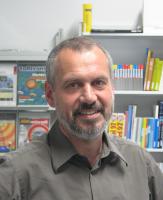
Manfred Wacker is a senior academic councilor in the Department for Transport Planning and Traffic Engineering, University of Stuttgart. He has been dealing with parking since he entered the University of Stuttgart in September 1985. He is one of the leading experts in parking in Germany. Additionally, he is involved in several studies in Stuttgart supporting the Municipality of Stuttgart to reduce the negative impact on the environment of car-based individual traffic.
Examining and Planning for the Impact of Emerging Trends in the Parking Industry
Advancements in technology, policy, and the social economy have a pervasive impact on almost every aspect of our lives and the parking industry is not immune to that. Over the past two decades, parking professionals have seen incredible changes influence the industry and the change has only just begun. In order to remain sustainable, relevant, and successful, the industry needs to act now to prepare for tomorrow. Our presentation will examine emerging trends affecting the industry including technology, policy, organization and operation, social economies, and the customer experience. This presentation will appeal to parking operators, consultants, theorists, innovators, and administrators.
Chris Hylton served as trustee on the Calgary Parking Authority for many years and has extensive experience and a unique perspective on improving industry practices. He developed programs that provide EAP, compensation, and benefits strategies to employees in a variety of industries.
Project “Development of Methods for Generation and Digitalization of Parking Space Data”
Management of parking space is an instrument that can influence quality and amount of traffic, choice of transport mode and choice of destination. The Basis for this is a complete and dynamic parking space data. Most German cities do not have a complete data base of on- and off-street parking. This is known from a survey Prof. Schäfer conducted in 2004 and 2014. In the Project the research group will develop methods which facilitate establishment and digitalization of parking data. The collected data will be prepared and made available in an open data platform (of the Federal Republic of Germany). On this base, municipalities are able to install a dynamic parking space management. The project is divided into two parts. The first part is to find out what data already exists. To achieve that, it is necessary to consider different sources and involve all stakeholders. After preparing the collected data, the data gaps have to be identified. The information about gaps is the basis for the method development. The collaboration with developers of innovative technologies to find out most operable methods is the second part of the project. This project is funded by the Federal Ministry of Transport and Digital Infrastructure.
Prof. Dr.-Ing. Petra K. Schäfer has been a professor of traffic planning at Frankfurt University of Applied Sciences since 2017. She is the leader of the research group “New Mobility” where the main topics of the research are parking and electro mobility. For her research in the last years, she received two research awards in 2017. She is Leader of the committee “Parking” in the German Road and Traffic Research Association. After studying civil engineering at the Technical University of Darmstadt, Prof. Schafer did her doctorate there as research assistant at the institute of traffic planning and traffic engineering. The subject of the doctor thesis was “alternative methods of paying parking fees”. After her time there, she worked in the center of integrating traffic systems (ZIV) in Darmstadt.
The Parking Operator as Mobility Manager. New interfaces, new applications, new business areas?
The operator and owner of car parks and underground garages played an important role to ensure the accessibility and to increase the attractiveness of town centers in the last decades. A balanced number of parking places was and is an essential component to regulate the urban traffic situation. The industry "Parking", however, has changed significantly in the past twenty years. Originally, the car park was used solely to park a vehicle. The parking garage was a purely functional building, simple and aligned to the former vehicle dimensions. Today, the functional demands on parking facilities and so the requirements on the operators have changed. The focus is more on the needs of users. Parking is now often seen as an integrated component of an overall mobility concept, the car park becomes a mobility interface. Changing to other forms of mobility should be ensured through seamless access and service offerings for the way ahead (bicycles, Segways, rickshaws etc.) or special offers such a combined use of parking tickets, which also serve as a ticket for public transport. At the same time, the operator should achieve greater customer satisfaction through modern layouts, wide parking spaces, a bright and friendly atmosphere and individual services (mobile network coverage, WiFi, sanitary areas, car wash, on-site personnel, etc.). However, a parking garage is also an asset; necessary investments in a car park must be in a balanced relationship to the purpose of use. In this respect, the operator is in an area of conflict: where begins an economic imbalance? In the presentation new and innovative approaches for integrated services, relating to parking and mobility based on infrastructures of the parking industry will be presented. How and what can, for example, IT service provider contribute to the improvement of parking, which mobile applications are useful and how can they be integrated? These and other questions will be critically examined.
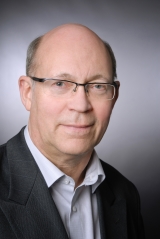
Dr. Ilja Irmscher is CEO of GIVT mbH, a planning and consulting company for parking and publicly appointed and sworn expert for parking and parking systems by the Chamber of Commerce for many years. He has more than 20 years of experience in the field of conventional, mechanized and automated parking. Dr. Irmscher is member of several task forces and author of numerous publications (e.g. Parking Structures, Construction & Design Manual, Vol. ½, DOM publishers, 2012, Berlin, new edition in preparation). Dr. Irmscher started his academic carrier at the University of Dresden as a mechanical engineer for the automotive industry and obtained his doctorate in 1982. He was a researcher and university lecturer in the following years, and habilitated at the Humboldt University Berlin in 1987. Between 1988 and 1992, he was university professor for vehicle technology. The focus of his work as planner and expert is a car park design with an optimal mixture of functionality, sustainability and user friendliness. Since he tested and evaluated more than 200 car parks all over Europe during the last decade, Dr. Irmscher has seen lots of best and bad practice in the area of parking and parking technologies. He shared his long-time experience in several workshops on parking related topics and was speaker on many international conferences.
Parking and Parking Management in Berlin – an overview of concepts and solutions
Berlin has an extended public transport system and moderate motorization rates in relation to other capitals – and therefore no parking problem? No, parking and parking management were and are prominent topics in media and politics in Berlin. The presentation will give an overview of past and present concepts and solutions for parking in the inner city, which is still characterized by its former separation. Successful and failed attempts, planning concepts and the current mobility concept will be described, taking into consideration all means of transport (from bicycles to buses).
Angela Schiefenhövel has been head of project management at GIVT mbH since 2009 and is familiar with all areas of car park and parking space planning. She was project manager for the ADAC car park test from 2010 to 2013 for the ADAC headquarter in Munich, in which over 200 car parks were tested. From 2004 to 2008 she worked as a lecturer and research assistant at the Institute of Economic Geography at the Humboldt University in Berlin and was financial and project manager responsible for the EU project "city parking in Europe". She is co-author of the two-volume book "Parking Structures, Construction & Design Manual ", which is published worldwide in four editions. The second edition is being prepared. She studied economic and traffic geography, sociology and ethnology in Marburg and Berlin.
Direct navigation to the nearest available on-/off-street parking lot: A solution to losing time and causing congestion
Community-based parking is the connected solution for finding available parking spaces on the street quickly. Via sensors and connectivity hardware, vehicles identify available spaces as they drive past. Drivers looking for parking benefit from the data acquired by the community, and can be guided to available spaces in a more rapid, convenient, and precise manner using information displayed to them in real time.
Stefan Koch
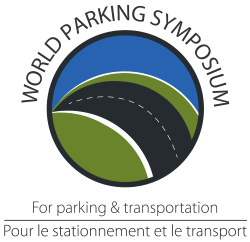
 WPS Conference
WPS Conference

